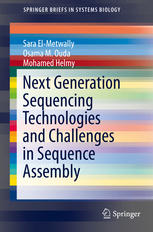

Most ebook files are in PDF format, so you can easily read them using various software such as Foxit Reader or directly on the Google Chrome browser.
Some ebook files are released by publishers in other formats such as .awz, .mobi, .epub, .fb2, etc. You may need to install specific software to read these formats on mobile/PC, such as Calibre.
Please read the tutorial at this link: https://ebookbell.com/faq
We offer FREE conversion to the popular formats you request; however, this may take some time. Therefore, right after payment, please email us, and we will try to provide the service as quickly as possible.
For some exceptional file formats or broken links (if any), please refrain from opening any disputes. Instead, email us first, and we will try to assist within a maximum of 6 hours.
EbookBell Team

4.0
46 reviewsThe introduction of Next Generation Sequencing (NGS) technologies resulted in a major transformation in the way scientists extract genetic information from biological systems, revealing limitless insight about the genome, transcriptome and epigenome of any species. However, with NGS, came its own challenges that require continuous development in the sequencing technologies and bioinformatics analysis of the resultant raw data and assembly of the full length genome and transcriptome. Such developments lead to outstanding improvements of the performance and coverage of sequencing and improved quality for the assembled sequences, nevertheless, challenges such as sequencing errors, expensive processing and memory usage for assembly and sequencer specific errors remains major challenges in the field.
This book aims to provide brief overviews the NGS field with special focus on the challenges facing the NGS field, including information on different experimental platforms, assembly algorithms and software tools, assembly error correction approaches and the correlated challenges.